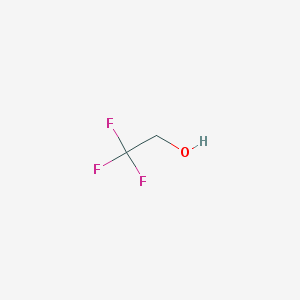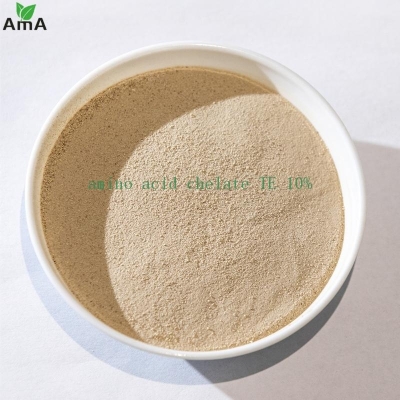-
Categories
-
Pharmaceutical Intermediates
-
Active Pharmaceutical Ingredients
-
Food Additives
- Industrial Coatings
- Agrochemicals
- Dyes and Pigments
- Surfactant
- Flavors and Fragrances
- Chemical Reagents
- Catalyst and Auxiliary
- Natural Products
- Inorganic Chemistry
-
Organic Chemistry
-
Biochemical Engineering
- Analytical Chemistry
- Cosmetic Ingredient
-
Pharmaceutical Intermediates
Promotion
ECHEMI Mall
Wholesale
Weekly Price
Exhibition
News
-
Trade Service
Epidermal growth factor receptor ( EGFR ) is the most comprehensive target in the development of lung cancer targeted drugs so far.
Both the number of approved targeted drugs and the coverage of medical insurance can be regarded as the most targeted drugs
.
Mutations in the EGFR tyrosine kinase region mainly occur in exons 18-21, among which exon 19 deletion mutation (19del) and exon 21 point mutation (21L858R) are two relatively common forms of mutations, which account for approximately In 90% of the total, the incidence of 20-exon insertion mutations (20ins) is relatively low, accounting for 4%-12% of the mutations
.
EGFR 20ins occurs in the C-helix and A-loop regions at the N-terminus of EGFR protein, with strong heterogeneity.
There are currently more than 60 EGFR 20ins forms
.
The study found that the progression-free survival of patients with EGFR 20 ins lung cancer was significantly shorter than that of classic EGFR sensitive mutations, and they were resistant to the first-generation EGFR-TKI.
Recently, however, there have been frequent reports of successful drugs targeting EGFR 20ins NSCLC
.
On May 21, Johnson & Johnson’s Janssen Pharmaceuticals announced that the FDA has accelerated its approval of amivantamab for the treatment of metastatic non-small cell lung cancer (NSCLC) patients with EGFR exon 20 insertion mutations that have progressed after platinum-based chemotherapy, under the trade name Rybrevant
Amivantamab and mobocertinib are the two fastest-growing drugs in the treatment of EGFR 20ins NSCLC
.
Amivantamab is a collaboration between Johnson & Johnson and Genmab of Denmark.
Mobocertinib is a potent small molecule tyrosine kinase inhibitor (TKI), specifically designed to selectively target EGFR and HER2 exon 20 insertion mutations
.
It is worth mentioning that mobocertinib is the first oral drug that can selectively target EGFR 20 exon insertion mutations.
In terms of efficacy, two drugs, amivantamab and mobocertinib, cannot be judged because they have not undergone a head-to-head study
.
However, the latest results of the phase I clinical study CHRYSALIS approved by the FDA for amivantamab show that amivantamab has strong clinical anti-tumor activity and durable response: the overall response rate (ORR) is 40%, the median duration of response (DOR) is 11 months, The median progression-free survival (PFS) was 8.
So far, mobocertinib's progress in the United States has lagged behind amivantamab
.
In China, both of these two drugs have been included in the breakthrough treatment category by CDE, and this time mobocertinib is planned to be included in the priority review by CDE.
In addition, there are currently a number of NSCLC drugs under development for EGFR exon 20 insertion mutations, such as DZD9008 from Dizhe Pharmaceutical, CLN-081 (formerly known as TAS6417) from Dapeng Pharmaceutical/Cullinan Oncology, and Hanmi Pharmaceutical Co.
, Ltd.
Poziotinib, BDTX-189 from Black Diamond Therapeutics
.
Moreover, osimertinib, a third-generation EGFR-TKI targeted drug that has been approved for marketing, also has a certain effect on NSCLC patients with EGFR 20 exon insertion mutations
►CLN-081 is a small molecule EGFR inhibitor developed by Dapeng Pharmaceuticals, which was later licensed to Cullinan Oncology.
In January 2021, Zai Lab obtained the development, production and commercialization rights of the drug in Greater China from Cullinan Oncology
.
The drug is currently in the phase I/IIa clinical trial (NCT04036682) for recurrent or advanced NSCLC with EGFR 20 exon insertion mutations.
►DZD9008 is a specific EGFR-TKI designed for EGFR/HER2 exon 20 insertion mutations independently developed by Dizhe Medicine.
It is currently undergoing clinical trials in NSCLC patients with EGFR 20 exon insertion mutations.
As of November 2020 On the 20th, its clinical trial results showed that DZD9008 has a significant therapeutic effect in patients with EGFR exon 20 insertion mutation non-small cell lung cancer.
Under the recommended phase 2 key research dose, the best ORR reached 41.
2%, and DCR (Disease Control Rate) ) Reach 100%
.
In December 2020, the drug was included in the CDE's list of breakthrough treatments for the treatment of locally advanced or metastatic NSCLC carrying EGFR exon 20 insertion mutations that have received at least one systemic chemotherapy in the past
.
►Poziotinib (HM781-36B) is a pan-HER tyrosinase inhibitor, Luye Pharma has its rights in the Chinese market, and Spectrum has rights outside of the Chinese and Korean markets
.
Data from the ZENITH20 study of the drug for the treatment of EGFR/HER2 exon 20 insertion mutation NSCLC showed that among all the treated patients, the overall ORR of the EGFR 20ins group (115 cases) was 14.
8%, and the median DOR was 7.
4 months
.
Among the evaluable patients, the ORR was 18.
3%, and the ORR of the second-line or third-line treatment of EGFR 20ins was 15% and 16%, respectively
.
►BDTX-189 is an oral, irreversible small molecule inhibitor that can selectively inhibit HER2 allosteric mutation, EGFR exon 20 insertion mutation, HER2 exon 20 insertion mutation, and HER2 p95 mutation.
It has been treated with allosteric Fast-track qualifications for adult solid tumors with sexual HER2 mutations, or EGFR and HER2 exon 20 insertion mutations, are currently in the phase 1/2 trial (NCT04209465)
.







